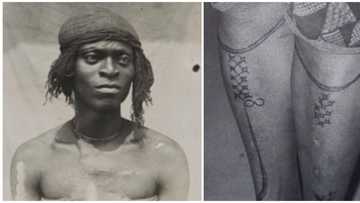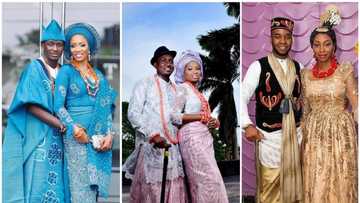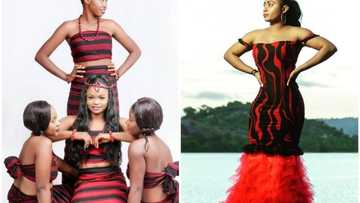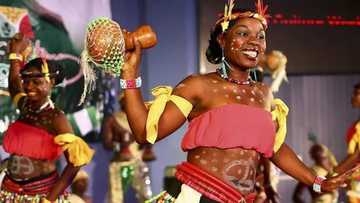Igbo tribal marks meaning
Different tribes that live in Africa love making their special marks and scarification. Sometimes their ‘body tattoos’ look exciting and mysterious, sometimes the scars look scary. Let us look at the main Igbo tribal marks meaning.
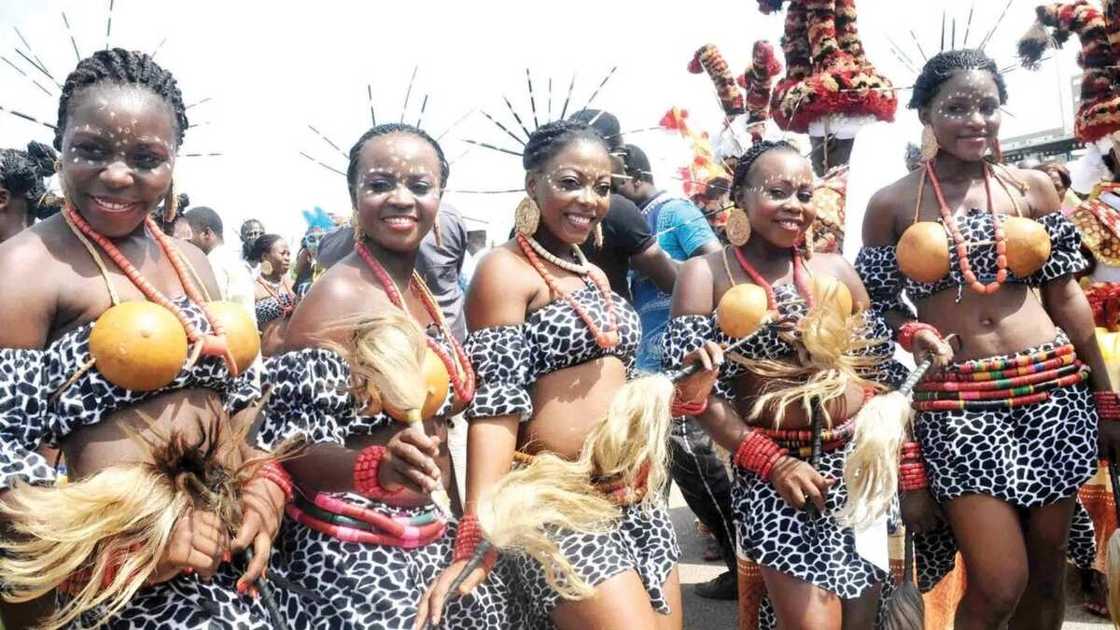
Igbo tribe and their marks
This community is well known all across Nigeria, even though Igbo tribe mainly lives in the southeastern parts of the country (Enugu, Abakaliki, Okigwe, and other villages in Igboland).
Igbo tribe is definitely one of the biggest tribes in the whole Africa. Of course, this ethnic group has to distinguish itself from other communities. That is why it uses different tribal marks in Nigeria.
Here are the main reasons for tribal identification through marks and scarification:
- Parents wish their kids to be identified as Igbo tribe members from birth.
- Marks are added temporarily for spiritual reasons, for festivals and celebrations.
- Scarification or marks are meant to beautify tribe members.
- Marks and scars can be used to distinguish between royal and free children.
We should mention that after the colonization of Nigeria experts see a decline in usages of tribal marks by ethnic groups, including Igbo people.

Tribal marks
Igbo tribe, just like any other African tribe, loved to identify its members since birth. When a new child was born, his or her family usually added tribal marks to show which ethnic group the baby belonged to and what his or her family lineage was.
European trends that influence Nigeria and Igbo tribe make scarification and marks outdated, but you can still understand the main Igbo tribal marks meaning because body tattooing is used during holidays all across the country.
Main tribal marks used by Igbo people:
- Uri (Uli)
- Egbugbu
- Nsibidi
- Ogbanje scar
- Nki
- Ichi
What do they mean?

Uri marks
Uri are colorful drawings made on the skin with dark and light dyes, usually of yellow, black, white, and brown colors. Their main meaning is to make a woman beautiful and attractive and ready for tribe holidays. Uri or Uli tribal marks are mainly used for various events and celebrations. They are temporary lines that create various shapes on female bodies, hands, and legs, and last for approximately 7 days.
It is curious that Uri drawings can serve not only as tribal marks for celebrations but also as cute mural decorations on Igbo houses.
Egbugbu marks
Back in the old days, Igbo tribe members added Egbugbu signs to faces and other parts of the bodies to mark their people as slaves or free people. Different designs were used depending on the village where the new baby was born.

Nsibidi marks
While Nsibidi is mainly used in metal designs, pottery, headrest, wall drawings and ceramic stools, some Igbo people add Nsibidi symbols as body tattoos. There are over 500 known Nsibidi signs with their own meaning and they are all hundreds of years old.
Nsibidi tattoos used by some Igbo tribe members can have many different meanings, from love affairs to sacred sense.

Ogbanje mark
Some Igbo people believe that their only way to protect kids from being taken away by evils (called ogbanje) is to leave a scar on their bodies.
Nki marks
Some tribe members add Nki markings to their faces and bodies to show everyone that they are strong and are not afraid of pain.
Usually, these signs are green and made with a needle. They do not mean any special status, but many people are proud to add these Igbo markings.
READ ALSO: History of Igbo-Ukwu art

Ichi scarification
If Uri are tribal marks worn by women, Igbo men usually wear Ichi on their faces. These male marks always meant the high social class of their owner. Those Igbo men who have Ichi décor on their face are allowed performing various rituals and give titles to influential tribe members.
You should learn about 2 type of Ichi marks:
- Agbaja – these marks (moon-like circles and semicircles) are preferred by members in Nkanu and Awgwu territories.
- Ndri – this decoration (sun-like carved lines that go from forehead to male chin and across cheeks) is usually used by people from Awka-Nri territories.
Many experts are sure that Ichi scarification has nothing to do with tribal marks. These scars mean privilege to their owner, they are created to outline the special status, high rank, nobility of a man, etc.
Getting Ichi scar was painful and meant to test male courage (children and adults were not allowed to make a sound), because the skin was cut out with a knife with no medications given to the tribe member and often such procedures could last for over an hour. It took wounds much time to heal, and the scars stay with their owner until the end of his life.

You have learned the main Igbo tribal marks meaning and saw photos of their facial marks and scarification patterns.
While many Africans continue tattooing their faces and body these years, such traditions were more common in the past. Modern ‘tattoo’ drawings are mainly used for festivals and are loved by tourists, while scarification slowly becomes an out-of-date ritual.
READ ALSO: Igbo calendar 2018: festivals and holidays
Source: Legit.ng


